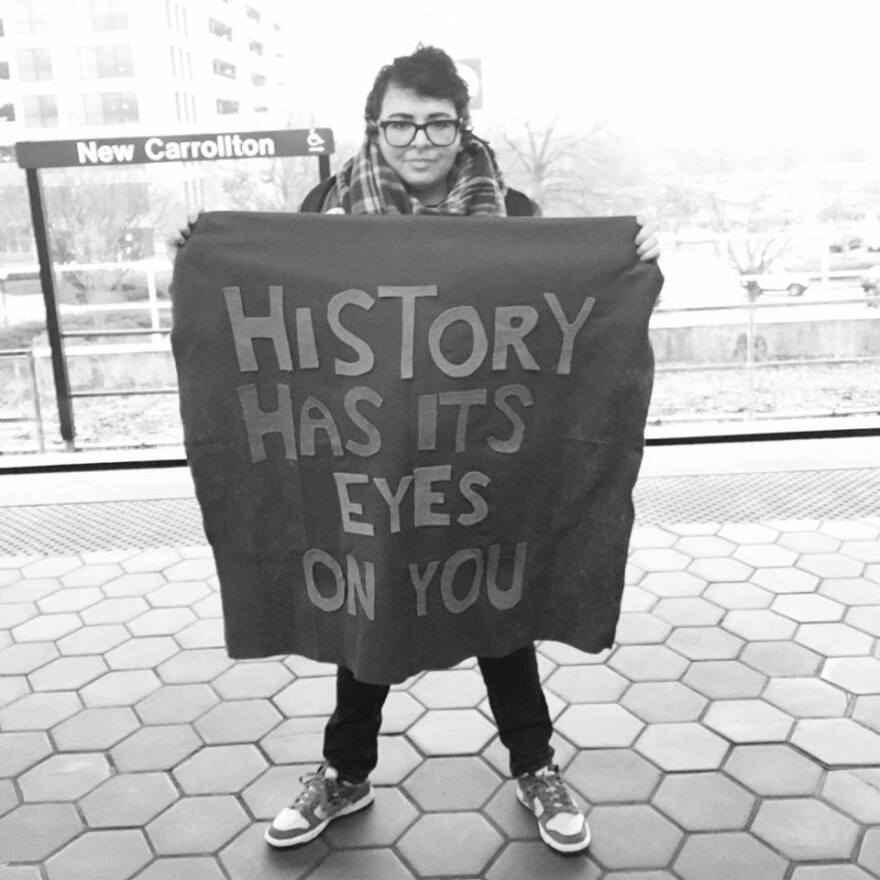In what may be a new era of so called "alternative facts" and much talked about fake news, a librarian at Illinois State University is working to document involvement by Bloomington Normal residents at women's marches across the country.
On Sunday, Trump adviser Kellyanne Conway said Presidential spokesperson Sean Spicer "gave alternative facts" in a dispute over the crowd size at the inauguration. Women's and Gender Studies Librarian at Milner Library Alexis Shpall Wolstein said during Sound Ideas that librarians have long disdained alternative facts. Wolstein was also one of an estimated 500,000 marchers in Washington D.C. on Saturday.
"For me the way to show what really happened is to find primary sources: first hand accounts, photographs. I'm asking people who were involved at the national marches and state marches and the local level to send us their narratives so we can gather them," said Wolstein.

One of those marchers from Bloomington Normal who may share her story with Wolstein is Marissa Uselton. The Lucca Grill waiter and Heartland Community College student said there was no question she'd march.
"I feel very strongly about my convictions about what it is to be a woman in this country," said Uselton. "I did not vote for Donald Trump and I do not support a lot of his views and his rhetoric through his campaigning and now that he's our president I feel very strongly about resisting that and not normalizing the kinds of things he and his cabinet and his administration are going to try to press upon us."
Uselton said she seeing evidence of normalizing. Co-workers who were strongly anti-Trump are saying, let's give him a chance and let's see what happens.
Wolstein said there was little question she would attend. She also helped fund other women to find their way to D.C. through Activists Mentoring Activists. She's been organizing for "weeks and weeks and weeks." Now she's following up by trying to archive as much of marcher's experiences as possible. Some of those experiences only exist online as Tweets, Facebook posts, and Instagram photos.
"Digital preservation is one of the most exciting things we have at our finger tips," said Wolstein. "There are so many different ways to digitize and save high quality images, ephemera, make them available in a variety of formats. We're planning on making these available with a Creative Commons license which means as long as you cite your sources and you show where your information is coming from you can share it in any way."

Wolstein says she's working with ISU's University Archives to preserve posters and other items. Despite fake news and alternative facts, documenting sources and ensuring archived information is accurate is no more important than it's ever been. However, she said technology makes it easier to fake it.
"The way digital information is shared, it's a lot easier to present something as factual," said Wolstein.
Uselton says it "feels incredible" to know that she may be part of the history of the Women's March archived at Milner Library and to know her experience may be part of a future research project.
Wolstein said she says she's already getting questions from students looking for research materials.

